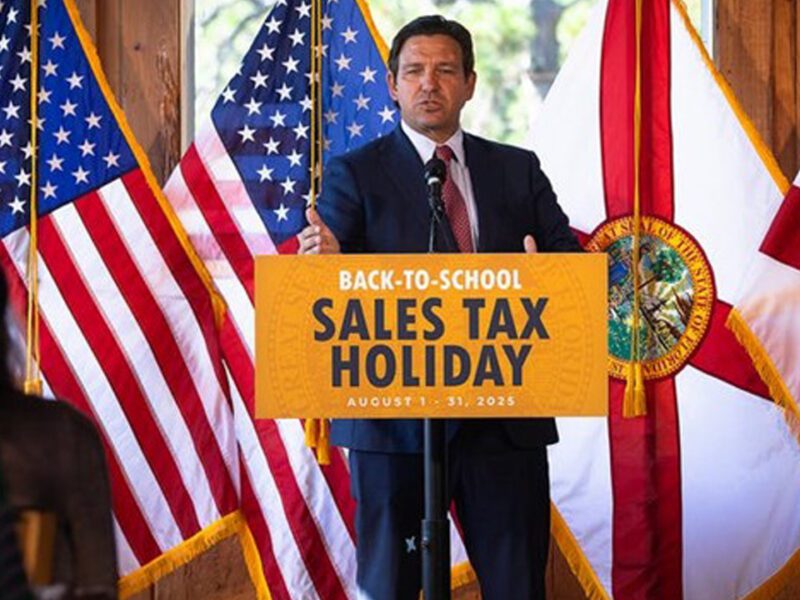Federal judge strikes down Florida ban on medical treatments for transgender kids
Miami Herald | By Romy Ellenbogen | June 11, 2024
Florida’s restrictions on medical care for transgender children are unconstitutional, a federal judge ruled Tuesday as he struck down a signature priority of Gov. Ron DeSantis.
U.S. District Judge Robert Hinkle’s decision invalidates much of a 2023 law and rules approved by state boards prohibiting children from accessing medical treatments for gender dysphoria, such as puberty blockers and hormones.
“Florida has adopted a statute and rules that ban gender-affirming care for minors even when medically appropriate,” Hinkle wrote in his 105-page order. “The ban is unconstitutional.”
Attorneys that represented the transgender plaintiffs argued that the law signed by DeSantis was an act of discrimination and “animus” against transgender people. The state said it was targeting the treatments, not transgender people themselves.
In his ruling, Hinkle, who was appointed to the bench by former President Bill Clinton, said that it was “clear that anti-transgender animus” motivated bill sponsors and some legislators who approved the law.
“Transgender opponents are of course free to hold their beliefs,” Hinkle wrote. “But they are not free to discriminate against transgender individuals just for being transgender. In time, discrimination against transgender individuals will diminish, just as racism and misogyny have diminished. To paraphrase a civil-rights advocate from an earlier time, the arc of the moral universe is long, but it bends toward justice.”
Hinkle pointed to comments from DeSantis and House representatives about young children being castrated or sterilized because of medical treatments for gender dysphoria. Hinkle said that the state admitted during the trial that there was no factual basis for those remarks, and that the record showed no evidence any Florida child had been “castrated or mutilated.”
“Perhaps all this talk about castration and mutilation is just political hyperbole,” Hinkle wrote. “But it casts at least some doubt on the assertion that these decisionmakers’ motivation was sound regulation of medical care in the best interest of transgender patients rather than outright disapproval of transgender identity.”
Along with striking down the rules banning kids with gender dysphoria from accessing medical treatment, Hinkle also struck down rules that required transgender adults to only get medical treatment from physicians, instead of from other kinds of health providers.
Hinkle last year also struck down Florida’s ban on Medicaid covering treatments for gender dysphoria. The state is appealing that ruling, and opponents have argued that the state has been defying Hinkle’s order and still denying Medicaid coverage.
DeSantis’ press secretary, Jeremy Redfern, said that the state would appeal Hinkle’s new ruling, as well.
“Through their elected representatives, the people of Florida acted to protect children in this state, and the Court was wrong to override their wishes,” Redfern said in an emailed statement. “We disagree with the Court’s erroneous rulings on the law, on the facts, and on the science. As we’ve seen here in Florida, the United Kingdom, and across Europe, there is no quality evidence to support the chemical and physical mutilation of children. These procedures do permanent, life-altering damage to children, and history will look back on this fad in horror.”
Major medical organizations like the American Academy of Pediatrics support children using treatments like puberty blockers for gender dysphoria. Hinkle said in his ruling that “not a single reputable medical association” has flatly opposed using puberty blockers and hormone therapy in appropriate circumstances.
If the state truly believed that gender dysphoria was being improperly treated in Florida, “despite the absence of complaints and despite the state’s inability, even now, to find a single adversely affected Florida patient,” they could have restricted or regulated care without banning it, Hinkle wrote in his order.
Simone Chriss, an attorney on the case and the director of the transgender rights initiative at the Southern Legal Counsel, said that Hinkle’s ruling “restores some balance in terms of, like, respect and dignity and decency in a state that has never been more in need of those things than right now.”
Chriss said that the ruling returns Florida to where it was just a few years ago, where decisions about transgender medical care are in the hands of patients, their families and their doctors.
The U.S. 11th Circuit Court of Appeals allowed a similar Alabama ban on medical treatment for transgender kids to take effect. But Chriss said the Florida case is different because the case out of Alabama didn’t argue that the laws were based on anti-transgender bias.
Jane Doe, one of the anonymous plaintiffs representing her transgender daughter, Susan Doe, said in a statement that the ruling means she won’t need to watch her daughter needlessly suffer.
“Seeing Susan’s fear about this ban has been one of the hardest experiences we’ve endured as parents,” Doe said in a statement. “All we’ve wanted is to take that fear away and help her continue to be the happy, confident child she is now.”





